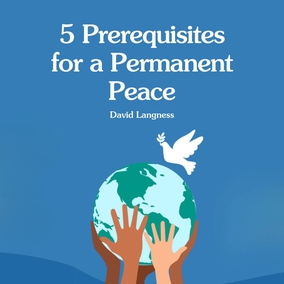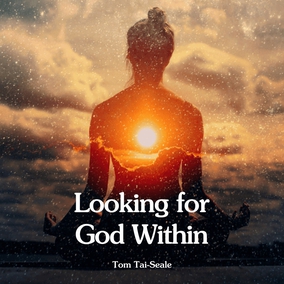The views expressed in our content reflect individual perspectives and do not represent the authoritative views of the Baha'i Faith.
Sooner or later everyone, without exception, departs from this physical plane – so how do we plan for it? We can start by asking ourselves “What ideas and hopes do I have for the end of my material life?”
This self-questioning can also include: “When I leave this realm, who would I like to have around me?” “Where would I like to be?” “How do I want to prepare?” These kinds of deep questions require some inner reflection and serious thought.
During that soul-searching process, which inevitably brings up more questions about life after death for most people, the teachings of the Baha’i Faith can serve as a source of reassurance and comfort. When death occurs, the Baha’i writings assure us, the body returns to the world of dust, but our souls remain immortal, and continue to progress. Abdu’l-Baha, in a speech he gave in Paris, pointed out that: “The spirit is changeless, indestructible. The progress and development of the soul, the joy and sorrow of the soul, are independent of the physical body.”
RELATED: Beginning Our Conversation about Death: Write Your Will!
Likewise, if we lose any of our physical capacities through illness or injury, and cannot speak for ourselves, Baha’is take great comfort in knowing, as Abdu’l-Baha said, “… it is apparent that the soul, even as the body, has its own individuality. But if the body undergoes a change, the spirit need not be touched.”
Then, only after receiving clarity about what we truly wish for and believe, can we begin writing our desires down, which may involve simply obtaining the paperwork to fill out to complete our own will and testament, or seeking professional guidance.
Writing a Will and Testament
Let’s begin with two basic definitions. A will, in legal terms, simply means a document that provides for the distribution of a person’s property after their death, and which appoints an executor to manage that process. A testament often means the same thing, but can also describe a statement of belief, a tangible proof or tribute.
You can write and sign your own will, and many no- or low-cost online legal resources can help with the format and the forms. Many countries and states require signatures by witnesses, as well. Also, each locality usually has free legal and health care resources that can assist with this process. If you have a large number of material possessions or complex financial instruments to distribute, you’ll likely want to engage an attorney or a legal firm to help. At the end of this article, you’ll find some helpful online resources that can answer some of your questions and get you started.
End-of-Life Care: What Do I Want?
Even before we contemplate the actual provisions of our wills, however, one of the major considerations we all need to think about is end-of-life care. Everyone should have, along with their will and testament, an advance directive that instructs caregivers what they should do in the event of an illness or injury that renders you unable to communicate your wishes.
To put together an advance directive, you can reach out to your local Bar and Medical associations which work in conjunction with your state, where they have direct access to these resources. For example, state and county bar associations, health care non-profit organizations, hospitals and community centers frequently hold free workshops where many of the necessary documents are included and discussed, including for example, POLST (Physician Orders for Life-Sustaining Treatment) forms. These workshops are usually provided at no cost, and often discuss and provide Advance Directive forms and other advance care planning tools.
Filling out an advance directive form often represents a collaborative effort with our physicians and health care providers. Attorneys and other fiduciary individuals can also help with paperwork specific to our situation in order to ensure that all local and state requirements are met, while being inclusive of our spiritual wishes. Do we want, for example, to be put on a mechanical respirator if we have difficulty breathing – or do we want to rule out those kinds of interventions and be allowed to pass away naturally? An advance directive helps caregivers respect your wishes at those junctures, and give you peace of mind, as well.
Just as the provisions in our wills and planned giving instructions may change over time, end-of-life care is also a process and can change as our circumstances change. Once we’ve begun this process, it will be easier to talk about changes or related issues in the future. In addition to the steps of writing a will and testament, our end-of-life preferences are part of the overall legacy we are privileged to leave with our loved ones and our future generations.
RELATED: How Do We Face Our Own Death?
When We Leave Our Physical Bodies
Through the guidance of the Baha’i writings, prayer, and meditation, with the assistance of education and direction from our trusted physicians, attorneys and other professionals who can help us chart this course, we can create a plan of action, and share it with our loved ones. That plan can specify where and how we would like to be buried, and even what prayers and readings should be read at our funeral.
While our own passing, and the passing of a loved one is difficult in that we say goodbye to the physical body, the Baha’i teachings assure everyone that our souls will pass into the heavenly realm. With that assurance in mind, when death comes we can rejoice in prayer for our loved one, taking comfort that their wishes have been honored. As Baha’u’llah wrote in The Hidden Words, death is really a second birth, when we all enter an eternal spiritual existence:
O Son of Spirit! With the joyful tidings of light I hail thee: rejoice! To the court of holiness I summon thee; abide therein that thou mayest live in peace for evermore.
https://theconversationproject.org/get-started
https://www.nia.nih.gov/health/caregiving/advance-care-planning
https://fivewishes.org/five-wishes/individuals-families/individuals-and-families
















Comments
Sign in or create an account
Continue with Googleor